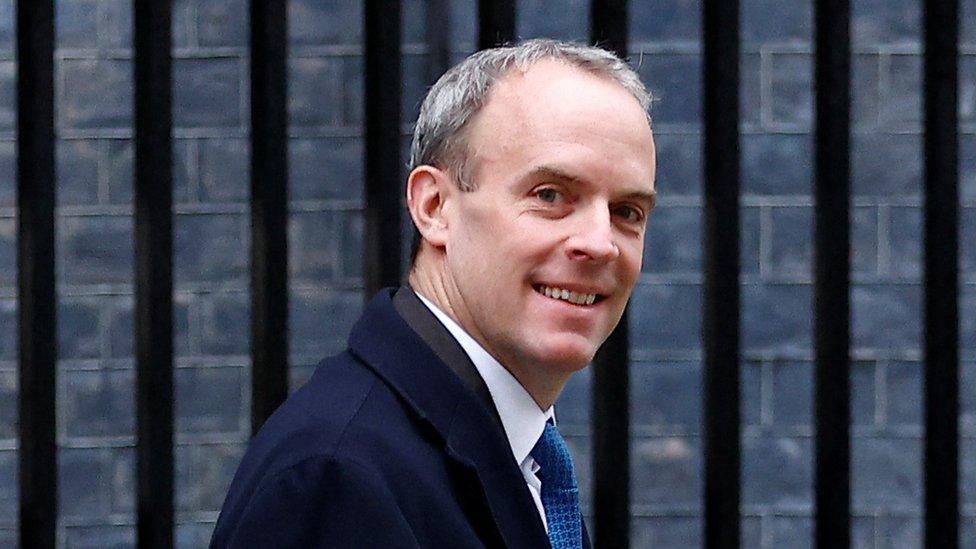Dominic Raab's ex-colleagues speak out as bullying probe reaches final stages
- Published
Three former colleagues of Dominic Raab spoke to the BBC's Ione Wells about their experience of working with him.
Former colleagues of Dominic Raab have spoken to the BBC about their experience of working with him, as an inquiry into bullying claims reaches its final stages.
The investigation into the allegations against Mr Raab is being led by senior lawyer Adam Tolley KC.
Dozens of people, including Mr Raab himself, have now given evidence to the inquiry.
The deputy prime minister and justice secretary has strongly denied bullying.
Mr Raab's evidence is now being reconciled with other witnesses, in a sign the probe is approaching its conclusion.
Mr Tolley has been interviewing people to gather evidence, both positive and negative, with some interviews lasting more than two hours each.
His investigation is expected to conclude soon and was commissioned to establish the facts. It will then be for the prime minister to judge whether his findings show that Mr Raab broke ministerial rules on bullying or not.
The inquiry is investigating eight formal complaints from Mr Raab's time at three government departments, involving at least 24 complainants.
The complaints relate to Mr Raab's time as justice secretary and foreign secretary under Boris Johnson, and his time as Brexit secretary under Theresa May.
Dozens more people have given evidence to the inquiry as witnesses.
The complainants cannot speak publicly while the inquiry is ongoing, but the BBC has spoken to a number of other people who worked closely with Mr Raab, who characterise his behaviour in different ways.
They wished to remain anonymous to not compromise their jobs.
Somebody who advised Mr Raab in a senior role in one department said: "I didn't personally feel bullied. I did observe though what I would characterise as bullying behaviour. There is no question in my mind about that."
They said he "expected high standards of people" but claimed he was "pretty belittling in terms of how he would go about those things".
"And he would frequently humiliate members of his private office and/or others that are working with him," they said.
"At a flick of a switch he could turn incredibly angry and pretty offensive in the way in which he talked to people."
'Belittling'
His conduct did not just impact colleagues, but taxpayers too, they say.
"Junior officials were, to all intents and purposes, protected from being exposed to his nastiness, his humiliation, his belittling, and therefore would not be invited to go to meetings with him.
"The effect was that he probably achieved something that no minister or secretary of state should try to achieve, which was to shut up those who are meant to be advising him. If you don't treat people humanely, fairly, with respect, the implications are that you're not going to get back quality outcomes."
One of Mr Raab's former parliamentary staffers says he was not a bully, but that reports about his behaviour have resonated with what they witnessed.
"There were a handful of occasions where I observed him make a member of staff cry, because he was not happy with their work. That was probably one of the things that I found most uncomfortable," they said.
"I think if a colleague cries and they come back to their desk and they're still fretting, and that happens more than once, then I think anybody should recognise that somebody is hurt from that interaction."
"If a member of his staff had delivered some work, which he didn't think was at the standard it should have been, he would tear it apart - frankly literally at times. I did observe that," they added.
"The reason I left was the intensity of the job. I think both professionally and emotionally."
Another parliamentary staffer that Mr Raab's office put us in touch with said they only had good things to say about him.
A different official, who has given evidence to the inquiry and worked with Mr Raab in multiple departments, said even in the most challenging experiences they had "never seen him swear or raise his voice".
"He was always very focused on his job, but always super nice, more perceptive than you'd realise," they said.
On hearing the news of the inquiry they said: "I was sad because everybody's experience is clearly different and it didn't correlate at all to my experience in the slightest… I think people would admit he's hard work because he is a perfectionist and he will go above and beyond to deliver for a department he wants to make changes [to]."
From people the BBC has spoken to, Mr Raab's behaviour seems to have had different impacts on different people. At times, similar descriptions of his behaviour are characterised very differently. That is the challenge for the lawyer investigating him.
The report of the investigation will be made public. Mr Raab has said he will resign if he is found to have been a bully, a judgement Prime Minister Rishi Sunak will have to make when presented with the facts.
He told the BBC's Laura Kuenssberg he was confident he was not a bully and "behaved professionally throughout".
His spokesperson has said that Mr Raab has been "very clear that he has always acted with professionalism and integrity, that he has never shouted or sworn, that he has enjoyed strong working relationships with a range of fantastic civil servants, and that he will address all allegations put to him in the fair and formal setting of the independent inquiry that he called for".
Related topics
- Published2 March 2023
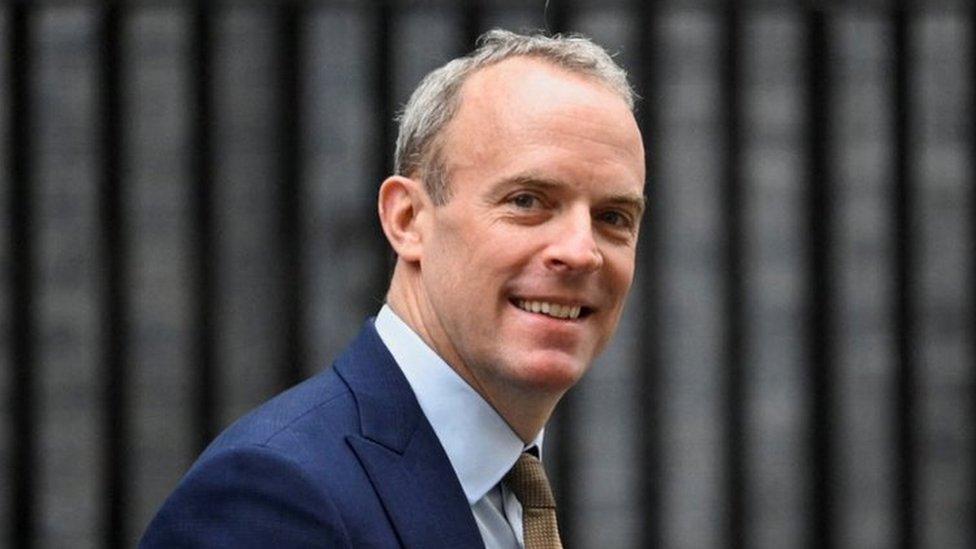
- Published26 February 2023
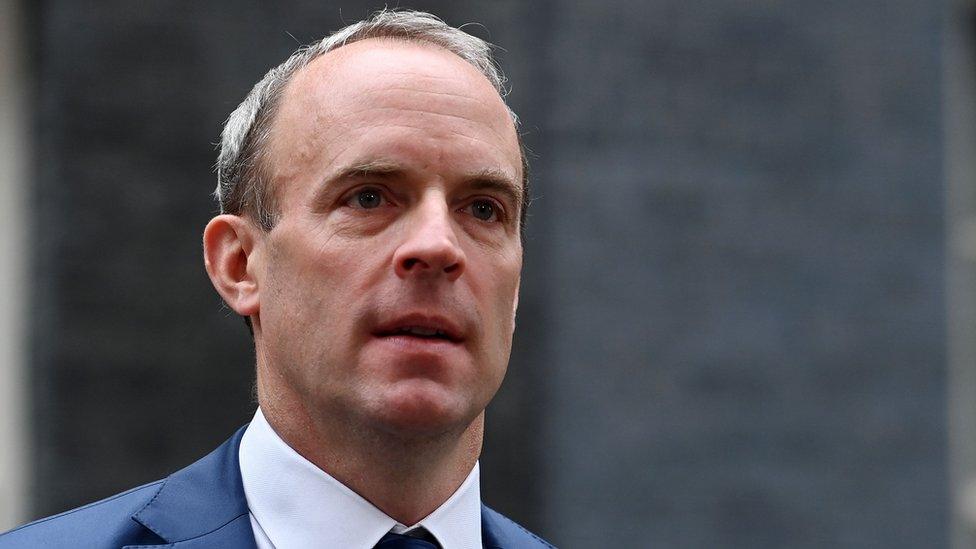
- Published10 February 2023
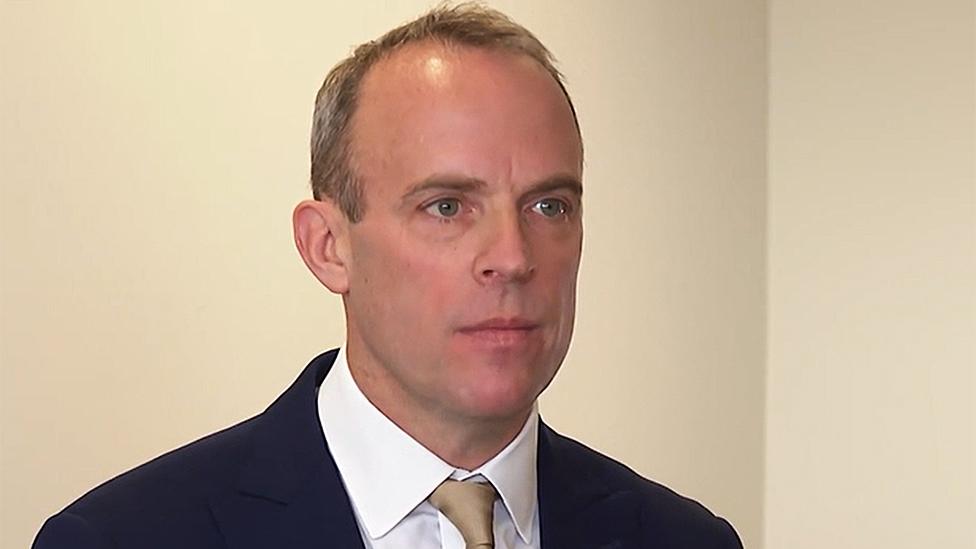
- Published7 February 2023
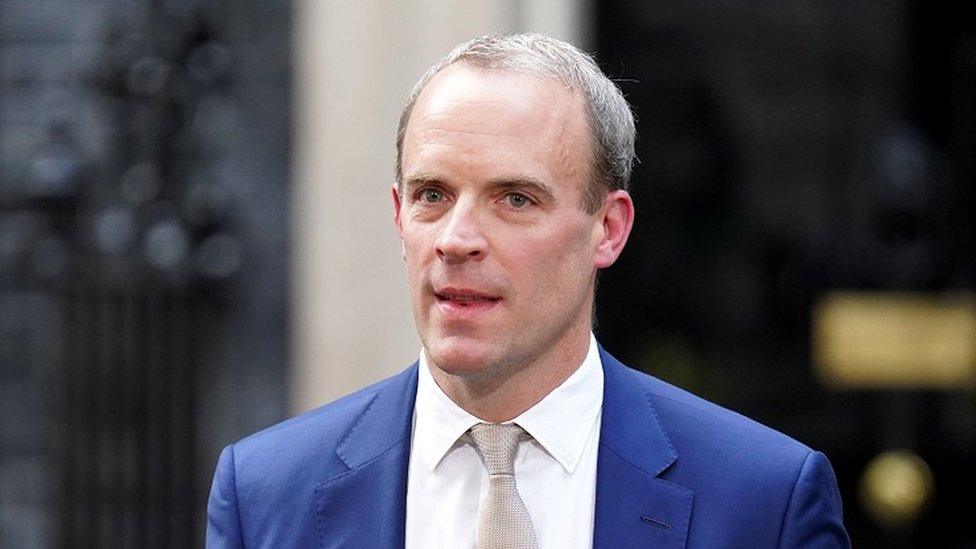
- Published2 February 2023
